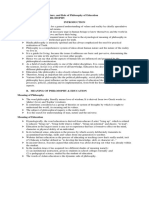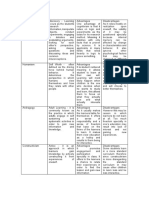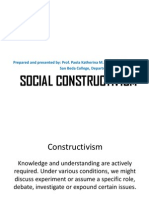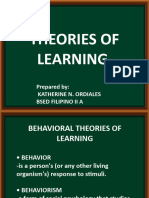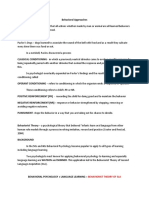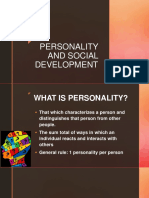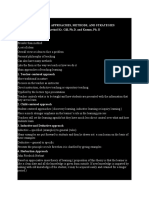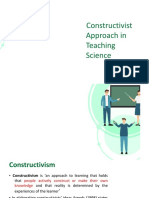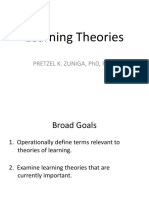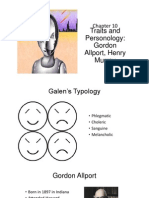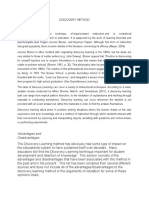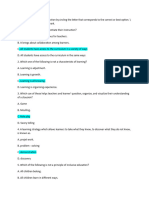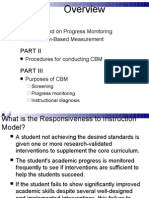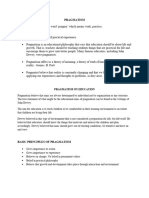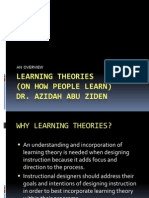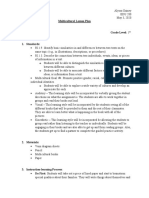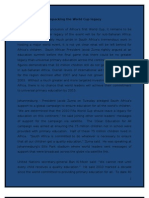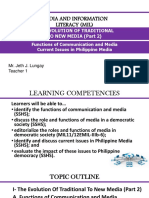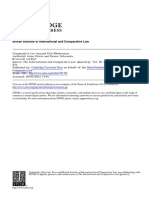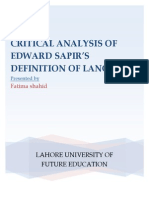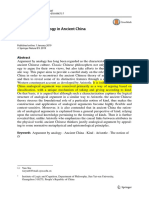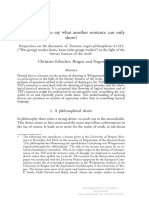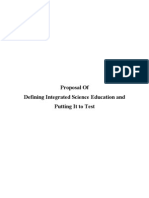0% found this document useful (0 votes)
105 views2 pagesOverview of Construct
Constructivism is a theory of learning that argues students actively construct their own understanding and knowledge of the world through experiencing things and reflecting on those experiences. Under constructivism, students are not empty vessels waiting to be filled, but rather gather and interpret information based on their prior knowledge and experiences. Constructivist teaching focuses on students actively engaging in problems and critical thinking around relevant problems, with teachers taking the role of facilitator rather than dispenser of information. The key premises of constructivism are that knowledge is constructed rather than transmitted, prior knowledge impacts learning, initial understanding is local not global, and building knowledge requires effortful activity.
Uploaded by
200941990Copyright
© Attribution Non-Commercial (BY-NC)
We take content rights seriously. If you suspect this is your content, claim it here.
Available Formats
Download as PDF, TXT or read online on Scribd
0% found this document useful (0 votes)
105 views2 pagesOverview of Construct
Constructivism is a theory of learning that argues students actively construct their own understanding and knowledge of the world through experiencing things and reflecting on those experiences. Under constructivism, students are not empty vessels waiting to be filled, but rather gather and interpret information based on their prior knowledge and experiences. Constructivist teaching focuses on students actively engaging in problems and critical thinking around relevant problems, with teachers taking the role of facilitator rather than dispenser of information. The key premises of constructivism are that knowledge is constructed rather than transmitted, prior knowledge impacts learning, initial understanding is local not global, and building knowledge requires effortful activity.
Uploaded by
200941990Copyright
© Attribution Non-Commercial (BY-NC)
We take content rights seriously. If you suspect this is your content, claim it here.
Available Formats
Download as PDF, TXT or read online on Scribd
/ 2




